Edward Luce's 6 favorite books that predicted the future of politics
The Financial Times columnist recommends works by Daniel Bell, Richard Hofstadter, and more

The True Believer by Eric Hoffer (Harper Perennial, $15).
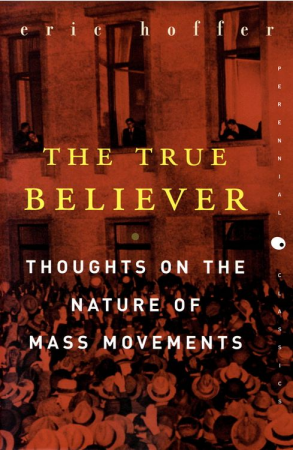
Hoffer's 1951 classic reads as even more incisive today. It charts why mass irrational movements attract people who feel they have been left by the wayside. It offers a timeless psychological study of the lure of the fanatic. Those hoping for insights into the success of Donald Trump's "America First" politics could do worse than start here.
The Paranoid Style in American Politics by Richard Hofstadter (Vintage, $17).
The Week
Escape your echo chamber. Get the facts behind the news, plus analysis from multiple perspectives.

Sign up for The Week's Free Newsletters
From our morning news briefing to a weekly Good News Newsletter, get the best of The Week delivered directly to your inbox.
From our morning news briefing to a weekly Good News Newsletter, get the best of The Week delivered directly to your inbox.

Much like Hoffer's book, The Paranoid Style will never lose its contemporary feel. From the Know-Nothings to McCarthyism, America's political DNA has caused periodic eruptions of fear-based politics. They crest and fall every generation or so. But Hofstadter's classic will always be there.
The Cultural Contradictions of Capitalism by Daniel Bell (Basic, $20).
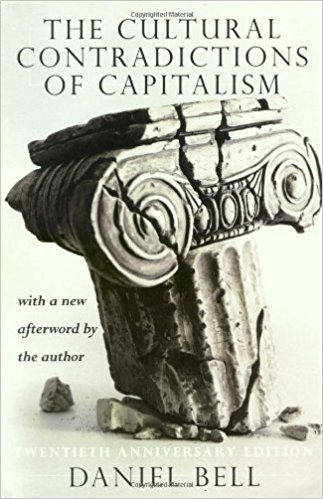
This is a dense, erudite, brilliant, and often infuriating book that never loses its ability to provoke lateral thoughts. Bell beautifully teases out the contradictions of a capitalist system that is built on the virtue of saving yet demands ever more frivolous consumption.
The Great Stagnation by Tyler Cowen (Dutton, $4 as an e-book).
A free daily email with the biggest news stories of the day – and the best features from TheWeek.com
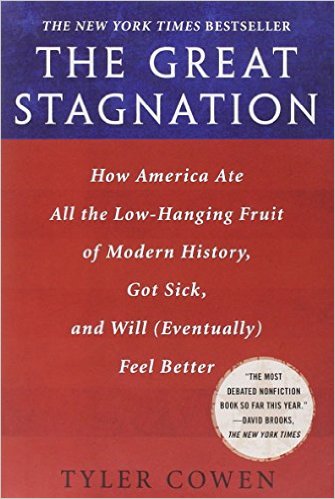
This minor gem was the first to diagnose the falling rate of productivity growth in the U.S. and the West in general. Cowen skillfully laid out how the "low-hanging fruits" of growth are receding. Today's populist moment was ultimately sparked by fears about the future of work. Cowen's book provides an essential backdrop to our economic anxieties.
India: A Million Mutinies Now by V.S. Naipaul (Vintage, $18).
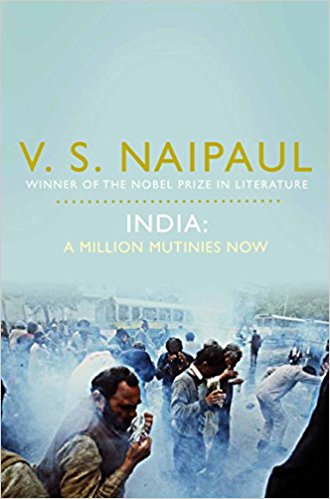
The cantankerous Nobel Prize winner hit his peak with this chronicle of an ever-restless modern India. It presaged the death of deference in India's pluralist democracy, where the future of politics will increasingly be written.
The Rise and Decline of Nations by Mancur Olson (Yale, $22).
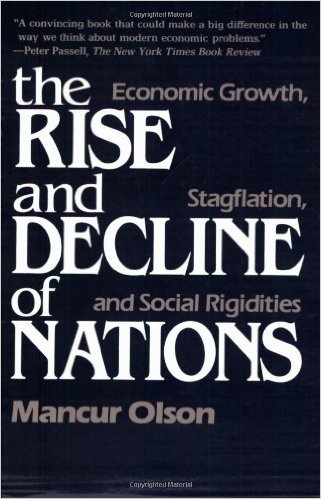
Advancing what's known as the barnacle theory of politics, Olson shows how the longer a society is stable, the tougher it is to get things done. This minor classic helps explain why the populist wave is hitting the U.S. and Britain hardest. These are the only two large Western democracies that in the past 100 years neither were invaded nor suffered a revolution.
— In his new book, The Retreat of Western Liberalism, Edward Luce explains why liberal democracy is facing its gravest crisis since World War II.
-
 Are pesticides making florists sick?
Are pesticides making florists sick?Under the Radar Shop-bought bouquets hide a cocktail of chemicals
-
 Will Trump’s 10% credit card rate limit actually help consumers?
Will Trump’s 10% credit card rate limit actually help consumers?Today's Big Question Banks say they would pull back on credit
-
 3 smart financial habits to incorporate in 2026
3 smart financial habits to incorporate in 2026the explainer Make your money work for you, instead of the other way around
-
 The billionaires’ wealth tax: a catastrophe for California?
The billionaires’ wealth tax: a catastrophe for California?Talking Point Peter Thiel and Larry Page preparing to change state residency
-
 Bari Weiss’ ‘60 Minutes’ scandal is about more than one report
Bari Weiss’ ‘60 Minutes’ scandal is about more than one reportIN THE SPOTLIGHT By blocking an approved segment on a controversial prison holding US deportees in El Salvador, the editor-in-chief of CBS News has become the main story
-
 Has Zohran Mamdani shown the Democrats how to win again?
Has Zohran Mamdani shown the Democrats how to win again?Today’s Big Question New York City mayoral election touted as victory for left-wing populists but moderate centrist wins elsewhere present more complex path for Democratic Party
-
 Millions turn out for anti-Trump ‘No Kings’ rallies
Millions turn out for anti-Trump ‘No Kings’ ralliesSpeed Read An estimated 7 million people participated, 2 million more than at the first ‘No Kings’ protest in June
-
 Ghislaine Maxwell: angling for a Trump pardon
Ghislaine Maxwell: angling for a Trump pardonTalking Point Convicted sex trafficker's testimony could shed new light on president's links to Jeffrey Epstein
-
 The last words and final moments of 40 presidents
The last words and final moments of 40 presidentsThe Explainer Some are eloquent quotes worthy of the holders of the highest office in the nation, and others... aren't
-
 The JFK files: the truth at last?
The JFK files: the truth at last?In The Spotlight More than 64,000 previously classified documents relating the 1963 assassination of John F. Kennedy have been released by the Trump administration
-
 'Seriously, not literally': how should the world take Donald Trump?
'Seriously, not literally': how should the world take Donald Trump?Today's big question White House rhetoric and reality look likely to become increasingly blurred